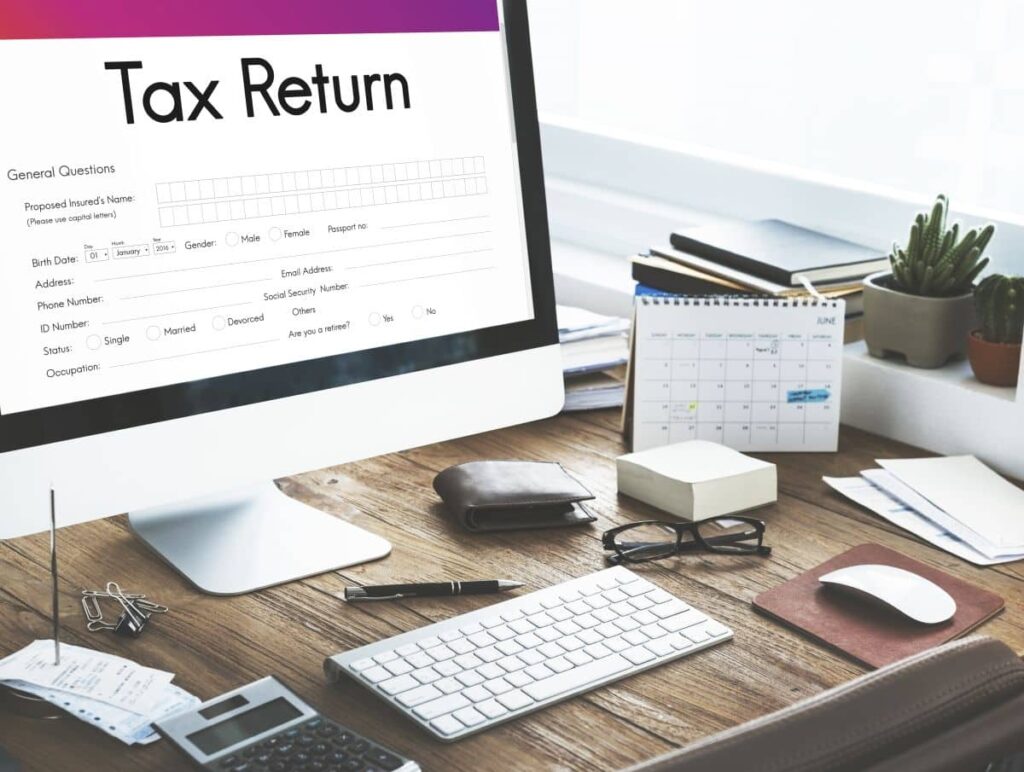Tax season is here again. While it may not be romantic, couples must handle this era with intelligence and teamwork. Whether you're newlyweds or have been married for decades, doing your taxes jointly may save you time, money, and worry. Let's discuss some crucial tips to make tax season easier for you both.
Understand Your Filing Status
1. The Importance of Knowing Your Status
In Australian taxes, understanding your filing status as a couple is pivotal. Australia requires individual tax returns, unlike several countries. However, married or de facto relationships alter tax concerns. It’s a dance of individual responsibility and collective implications.
2. Married or De Facto: What It Means for Your Taxes
The Australian Tax Office (ATO) considers married and de facto couples' finances partially interrelated. This interdependence affects numerous tax duties and advantages. Your relationship status might influence your eligibility for tax offsets like the spouse superannuation contributions tax offset and Medicare levy surcharge computations.
3. Joint Assets and Income Reporting
You and your partner may possess joint assets or split income, such as rental income from a property. Reporting your part of these revenues accurately on your tax returns is vital. Misreporting or omitting such details can lead to complications and even penalties. Remember, honesty with the ATO is as important as honesty in your relationship!
4. Tax Offsets and Benefits for Couples
Navigating the waters of tax offsets and benefits can be confusing yet rewarding. Certain offsets, such as the dependent (invalid and carer) tax offset, may be available depending on your circumstances. Additionally, understanding how your combined income affects your entitlements, like family tax benefits and child support. It's about finding those areas where being a couple can work in your financial favour.
5. Consulting a Professional: A Wise Step
Considering individual tax returns' complexities when in a relationship, consulting a tax professional can be wise. They can provide personalised advice, ensuring you both maximise your returns and comply with Australian tax laws. Think of it as getting a guide for your financial journey together.
Get Organised Early
1. The Early Bird Catches the Worm
Being early can make a world of difference regarding tax time. Starting early avoids last-minute worry and allows you time to gather all the paperwork. As with a puzzle, starting early makes it easier to put together.
2. Gathering Essential Documents: A Team Effort
Gathering the essential documentation is the first step. Include payment summaries, bank statements, and deduction receipts. In a relationship, this task can be divided and conquered. If one of you is more detail-oriented, take the lead in organising these documents. However, both partners must be involved and understand their finances.
3. Subtitles for Your Financial Story
- Payment Summaries and Income Statements: These documents underpin your tax return. They report employer, government, and other revenue.
- Bank Statements and Interest Earnings: Don't ignore savings or investment interest. These statements are essential for understanding your financial year.
- Receipts for Deductions: Keeping receipts for work, charitable, and investment expenses makes claiming deductions easier.
- Superannuation Reports: Understanding your super contributions is vital. These reports can affect your tax situation, especially if you’ve made any extra contributions or withdrawals during the year.
4. Digital Organisation: A Modern Approach
In the digital era, arranging tax paperwork doesn't require a paper folder. Cloud storage and digital technologies can transform the game. Not only does it reduce paper clutter, but it also allows both partners to access documents easily. Plus, you’ll be less likely to miss something important with everything in one digital spot.
5. Checking Twice: The Santa Claus Method
Check again once you think you have everything. Make a shopping list and double-check the pantry to make sure you remember everything. This stage ensures you get all deductions and income that might save you money or keep you out of problems with the ATO.
Understand Your Deductions
1. The Art of Knowing What You Can Claim
Discovering your deductions is like finding financial gems. Shared or individual expenses may reduce your taxable income as a couple. This might be complicated, but you can maximise your tax returns with some planning.
2. Subtitles for Your Deduction Hunt
- Work-Related Expenses: Unreimbursed work-related expenditures, including uniforms, travel, and home office expenses, can frequently be claimed. The cost must be directly tied to your income and documented to claim a deduction.
- Charitable Donations: Kindness has benefits beyond personal gain. Donations to recognised charities are normally tax-deductible. Keep any receipts to support your claims.
- Investment-Related Deductions: If you invest, you can deduct interest on loans, rental property upkeep, and dividends. Understanding these deductions can be confusing, so get guidance to claim appropriately.
- Educational Expenses for Self-Improvement: Your existing employer may cover part of your study fees. This covers tuition, textbooks, and travel.
3. Joint Deductions
Discussing and understanding each other's potential deductions is important in a relationship. The goal is to maximise your financial picture, not simply your claims. Claiming deductions on the higher-income earner's return is better if one of you earns less.
4. Document Everything
Keeping a meticulous record of all potential deductions is crucial. It's like a financial year diary. Keep receipts, invoices, bank statements, and other important papers. Easy access and organisation may be saved by digital record-keeping.
Plan for Joint Investments
Australian couples confront distinct chances and problems when investing together. It's like a financial trip where your choices affect your taxes and finances.
Many couples invest in real estate. Owning property jointly has tax implications, whether it's your dream house or an investment. Understanding capital gains tax (CGT) is crucial. Selling a non-primary dwelling may result in CGT on your gains. Timing and planning are key. The CGT deduction for assets kept for more than 12 months might make holding onto an investment more tax-effective.
It's not only asset sales. How you manage and fund these investments matters. Tax returns must include revenue from joint bank accounts that yield interest or dividends from jointly owned shares. The key here is understanding how to split this income fairly and by ATO guidelines.
Australians often use negative gearing. You can deduct this loss if the expense of keeping your investment property exceeds its revenue. This method affects income and tax bands differently. It's a bit like a balancing act – ensuring that the benefits of negative gearing align with your joint financial goals and situations.
In addition to property and shared accounts, you may also have investments in stocks or other assets. Accurate tax filing requires tracking these, notably dividends and value changes. Remember that every financial decision you make as a couple affects your returns and taxes.
And let's not forget about the power of superannuation. While super may seem like a solo endeavour, there are ways couples can strategise together for tax benefits. For example, making spouse contributions or splitting super contributions can be a smart way to build your retirement nest egg while optimising your tax situation.
Joint investments need open communication, careful planning, and occasionally expert counsel. Understanding the tax consequences of your assets and aligning them with your long-term goals can help you ensure your financial future.
Remember, the path of joint investments is a shared journey. Your decisions today will shape your future financial landscape together. So, take the time to understand, plan, and seek advice if needed because in the world of finances, like in a relationship, teamwork makes the dream work.

Utilise Superannuation Smartly
Superannuation might be intimidating when saving for the future, but it's crucial for Australian couples. Think of your super as a long-term savings strategy affecting your retirement comfort.
Many couples use superannuation to improve each other's savings and safeguard their futures. This can be done through spouse contributions. If one partner works less or is unemployed, the other can contribute to super. This may be financially smart as well as kind and supportive. The contributing partner may receive a tax offset, benefiting both of you.
Consider the co-contribution system. The government may contribute if one of you is a low- or middle-income earner and makes after-tax super payments. This strategy is terrific for raising your super balance and earning government assistance during retirement.
What if you both work and earn different amounts? Contribution splitting helps here. Splitting super donations makes sense. Contributions from the higher-earning partner are transferred to the lower-earning partner's super. Tax consequences must be considered while using this technique. Still, it can help you balance your super accounts and enhance your retirement savings.
Also, salary sacrifice. You agree with your company to defer a portion of your pay to your super. The concessional tax rate on these contributions is frequently lower than your marginal tax rate, making them a tax-efficient method to grow your super, like raising your future self at the price of your current income.
Superannuation laws fluctuate, making it complicated. Stay educated and consult a financial planner or superannuation specialist. They can assist you in understanding superannuation schemes and choosing the right one for your partnership.
Smart superannuation use involves planning and exploiting a couple of possibilities. This crucial financial step requires attention, preparation, and even innovative strategising. By now understanding and optimising your super, you're building a foundation for a more comfortable and secure retirement life together.
Discuss and Update Beneficiaries
Beneficiaries, notably superannuation and life insurance are typically disregarded in financial planning negotiations between spouses. Not a happy topic, but it's essential. Keeping your beneficiaries updated might provide you and them peace of mind, like a safety nett you hope you'll never need but appreciate.
Your Australian super fund will ask you to choose beneficiaries for your super after you die. This is not automatic. You may adjust your super beneficiary wishes as life changes. Marriage, a kid, or a relationship change might prompt nomination reviews. Making sure your money goes to individuals you love is key.
Beneficiary information is also important for life insurance. These plans protect your family financially after your death. But what if beneficiary data is outdated? Unintended repercussions might leave the support to someone you no longer want.
Giving beneficiaries updates goes beyond filling out papers and checking boxes. It lets you and your spouse discuss your goals, worries, and desires. Consider those you wish to protect and assist in your absence. This might be you, your kids, or other family members. Though difficult, thinking about these circumstances may enhance your relationship by providing clarity and stability.
Remember the tax ramifications of your actions in these talks. Superannuation distributions in Australia are taxed differently depending on the recipients. Dependents receive tax-free dividends, whereas non-dependents may pay varying taxes. Understanding these details can improve your decision-making.
Communicate these changes to your super fund and insurer. The debate and conclusions are one thing, but legalising and recording them seals the loop. Your requests will be honoured and followed as agreed upon.
Discussing and updating your beneficiaries is more than a financial task—it's a deep act of love and duty. Take charge of your legacy, guide your final actions of love, and support how you choose.
Communicate and Learn Together
Communication is essential in every relationship, especially when handling finances. Due to its complexity and bureaucracy, tax season in Australia may be a great chance for couples to bond over money via shared learning and open communication.
A good relationship requires discussing finances, which is less romantic than a candlelight supper. Sitting down with a cup of tea or coffee, you may share your financial objectives, anxieties, and aspirations. Be honest about income, debt, and spending now. Understanding financial viewpoints and finding common ground is key, not judgement.
Learning about taxes and finances together can also be empowering. It demystifies the process and helps both partners feel involved and responsible. Knowing how the Australian tax system works, what deductions you may claim, how superannuation affects your future, and the ramifications of joint investments make you more financially assured.
This shared learning journey can take many forms. You may attend a financial planning class together, watch a weekly finance webinar, or read personal finance articles. The idea is to make a dry issue interesting and useful to your relationship.
Discussing your long-term finances is crucial. In five or ten years, where do you see yourself? Do you want to purchase a house, travel, or have kids? How well does your tax preparation match these goals? These talks can assist you in making sure your tax tactics are more than simply this year's return but steps towards your future.
Remember that technology makes these talks simpler and more effective. Budgeting tools, online tax platforms, and spreadsheets can help you manage your finances. Using technologies to make money management easier and more collaborative.
Remember, every couple's finances are different. The most important thing is travelling together. Open communication and teamwork help you navigate tax time and strengthen your connection. This cooperation and mutual support will get you through tax season and all life's problems and joys.
Conclusion

Let's reflect as we conclude our exploration of Australian couple tax counsel. Tax time, a stressful annual task, may allow couples to bond, develop their relationship, and make good financial decisions for their future.
Couples must communicate and collaborate to navigate tax time. Each stage provides an opportunity to learn and improve, whether you're filing taxes, arranging paperwork, comprehending deductions, planning joint investments, managing superannuation, or updating beneficiaries. Financial decisions and talks are about creating a shared life goal, not simply statistics.
Knowing when to seek help is also crucial. Tax regulations are complicated and constantly changing, so consult a specialist for personalised assistance. Like in a relationship, asking for advice shows strength.
Use this tax season to learn more about each other's finances and long-term aspirations. Annually, you'll become more comfortable dealing with taxes jointly. It's about building a safe and successful future together, not simply getting through this year's return.
When you file your taxes this year, realise that you're weaving your financial life's tapestry. Tax time may strengthen your relationship if you approach it with patience, empathy, and a willingness to learn.
Content Summary
- Tax season is a time for couples to prepare for the upcoming year, and understanding their filing status is crucial for both parties.
- In Australia, married or de facto relationships can alter tax concerns, and understanding their filing status is pivotal.
- The Australian Tax Office (ATO) considers married and de facto couples' finances partially interrelated, which affects numerous tax duties and advantages.
- Joint assets and income reporting are essential, as misreporting or omitting such details can lead to complications and penalties.
- Tax offsets and benefits for couples can be confusing but rewarding.
- Understanding how combined income affects entitlements like family tax benefits and child support is essential.
- A tax professional can provide personalised advice to ensure both partners maximise returns and comply with Australian tax laws.
- Getting organised early can make a difference during tax time, allowing time to gather all the paperwork.
- Gathering essential documents, such as payment summaries, bank statements, and deduction receipts, is essential for understanding your financial story.
- Subtitles for your financial story should include payment summaries, income statements, bank statements and interest earnings, receipts for deductions, and superannuation reports.
- In the digital era, organising tax paperwork doesn't require a paper folder, and checking twice ensures you get all deductions and income that might save you money or keep you out of problems with the ATO.
- Understanding your deductions is important in a relationship, as shared or individual expenses may reduce your taxable income as a couple.
- Subtitles for your deduction hunt should include work-related expenses, charitable donations, investment-related deductions, and educational expenses for self-improvement.
- Keeping a meticulous record of all potential deductions is crucial, and digital record-keeping can save time and organisation.
- Planning joint investments is essential for Australian couples, as their choices affect their taxes and finances.
- Understanding capital gains tax (CGT) is crucial, and managing and funding these investments is key.
- Tax returns must include revenue from joint bank accounts that yield interest or dividends from jointly owned shares, and negative gearing can be used to deduct losses if the expense of keeping an investment property exceeds its revenue.
- In Australia, couples can make joint investments in property, shares, stocks, or other assets, impacting their returns and taxes.
- Accurate tax filing requires tracking dividends and value changes, and every financial decision made as a couple affects returns and taxes.
- Superannuation is a powerful tool for couples to strategise together for tax benefits, such as making spouse contributions or splitting super contributions.
- Open communication, careful planning, and expert counsel are essential for this shared journey.
- Superannuation is crucial for Australian couples, as it can be used to improve each other's savings and safeguard their futures.
- Couples can use spouse contributions, co-contribution systems, contribution splitting, and salary sacrifices to optimise their superannuation.
- Superannuation laws can be complicated, so it is essential to stay educated and consult a financial planner or superannuation specialist to understand schemes and choose the right one for your partnership.
- Keeping beneficiaries updated is essential for a comfortable and secure retirement life.
- Your Australian super fund will ask you to choose beneficiaries for your super after you die, but you can adjust your wishes as life changes occur.
- Beneficiary information is also important for life insurance, as it protects your family financially after death.
- Giving beneficiaries updates goes beyond filling out papers and checking boxes; it allows you and your spouse to discuss your goals, worries, and desires, considering those you wish to protect and assist in your absence.
- Remembering the tax ramifications of your actions in these talks can improve your decision-making.
- Communicate these changes to your super fund and insurer, as legalising and recording them ensures your requests will be honoured and followed as agreed upon.
- Discussing and updating beneficiaries is more than just a financial task; it is a deep act of love and duty.
- Take charge of your legacy, guide your final actions of love, and support how you choose.
- Tax season in Australia presents an opportunity for couples to bond over finances through shared learning and open communication.
- A good relationship requires discussing financial objectives, anxieties, and aspirations and being honest about income, debt, and spending.
- Learning about taxes and finances can be empowering, as it demystifies the process and helps both partners feel involved and responsible.
- To make the process more effective, couples can attend financial planning classes, watch weekly finance webinars, or read personal finance articles.
- Discussing long-term finances is crucial, as it helps ensure tax preparation aligns with long-term goals.
- Technology can make these discussions simpler and more effective, making money management more collaborative.
- Couples' finances differ, but open communication and teamwork help navigate tax time and strengthen their connection.
- Tax time allows couples to bond, develop their relationship, and make good financial decisions for their future.
- Knowing when to seek help is essential, as tax regulations are complicated and constantly changing.
- Use this tax season to learn more about each other's finances and long-term aspirations, becoming more comfortable dealing with taxes jointly.
- Building a safe and successful future together is key, and approaching tax time with patience, empathy, and a willingness to learn can strengthen the relationship.
Superannuation offers couples planning opportunities. Spousal payments to superannuation can be tax-effective. Remember to evaluate and amend your beneficiary nominations to reflect your current intentions.















